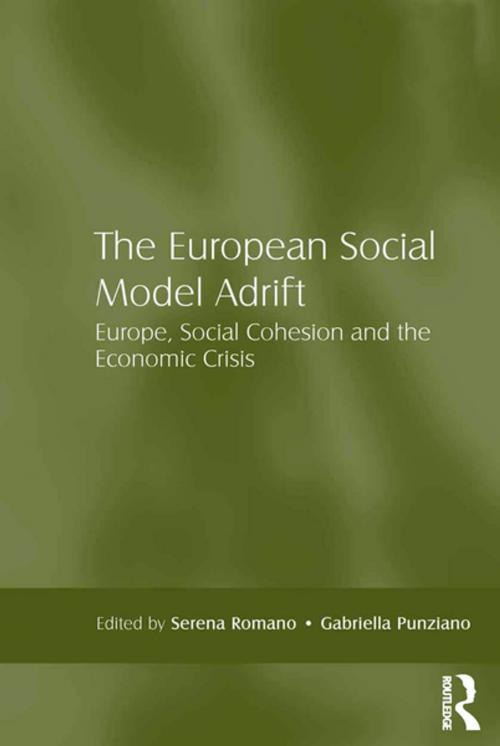The European Social Model Adrift
Europe, Social Cohesion and the Economic Crisis
Nonfiction, Social & Cultural Studies, Political Science, Politics, Social Services & Welfare, Social Science, Sociology| Author: | Serena Romano, Gabriella Punziano | ISBN: | 9781317033219 |
| Publisher: | Taylor and Francis | Publication: | March 9, 2016 |
| Imprint: | Routledge | Language: | English |
| Author: | Serena Romano, Gabriella Punziano |
| ISBN: | 9781317033219 |
| Publisher: | Taylor and Francis |
| Publication: | March 9, 2016 |
| Imprint: | Routledge |
| Language: | English |
This volume presents a new perspective for discussing the European social contract and its main challenges, bringing together single-nation and comparative studies from across Europe. Presenting both theoretical discussions and empirical case studies, it explores various aspects of social cohesion, including social protection, the labour market, social movements, healthcare, social inequalities and poverty. With particular attention to the effects of the international economic and financial crisis on social cohesion, particularly in the light of the implementation of so-called ’austerity measures’, authors engage with questions surrounding the possible fragmentation of the European model of social cohesion and the transformation of forms of social protection, asking whether social cohesion continues to represent - if it ever did - a common feature of European countries. Breaking new ground in understanding the future of Social Europe and its main dynamics of change, The European Social Model Adrift will appeal to scholars of sociology, social policy and politics, with interests in social cohesion, the effects of financial crisis and the European social model.
This volume presents a new perspective for discussing the European social contract and its main challenges, bringing together single-nation and comparative studies from across Europe. Presenting both theoretical discussions and empirical case studies, it explores various aspects of social cohesion, including social protection, the labour market, social movements, healthcare, social inequalities and poverty. With particular attention to the effects of the international economic and financial crisis on social cohesion, particularly in the light of the implementation of so-called ’austerity measures’, authors engage with questions surrounding the possible fragmentation of the European model of social cohesion and the transformation of forms of social protection, asking whether social cohesion continues to represent - if it ever did - a common feature of European countries. Breaking new ground in understanding the future of Social Europe and its main dynamics of change, The European Social Model Adrift will appeal to scholars of sociology, social policy and politics, with interests in social cohesion, the effects of financial crisis and the European social model.















